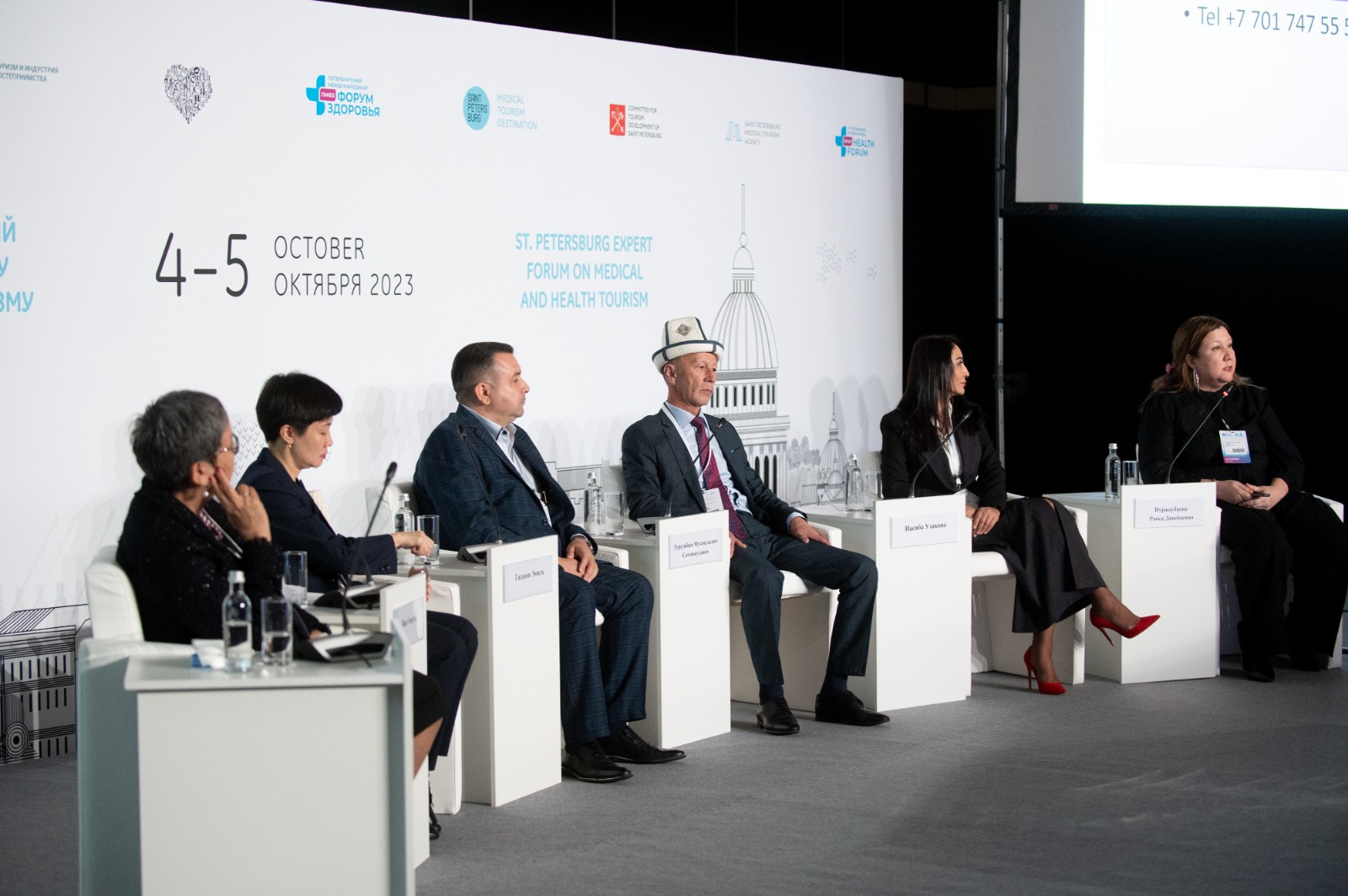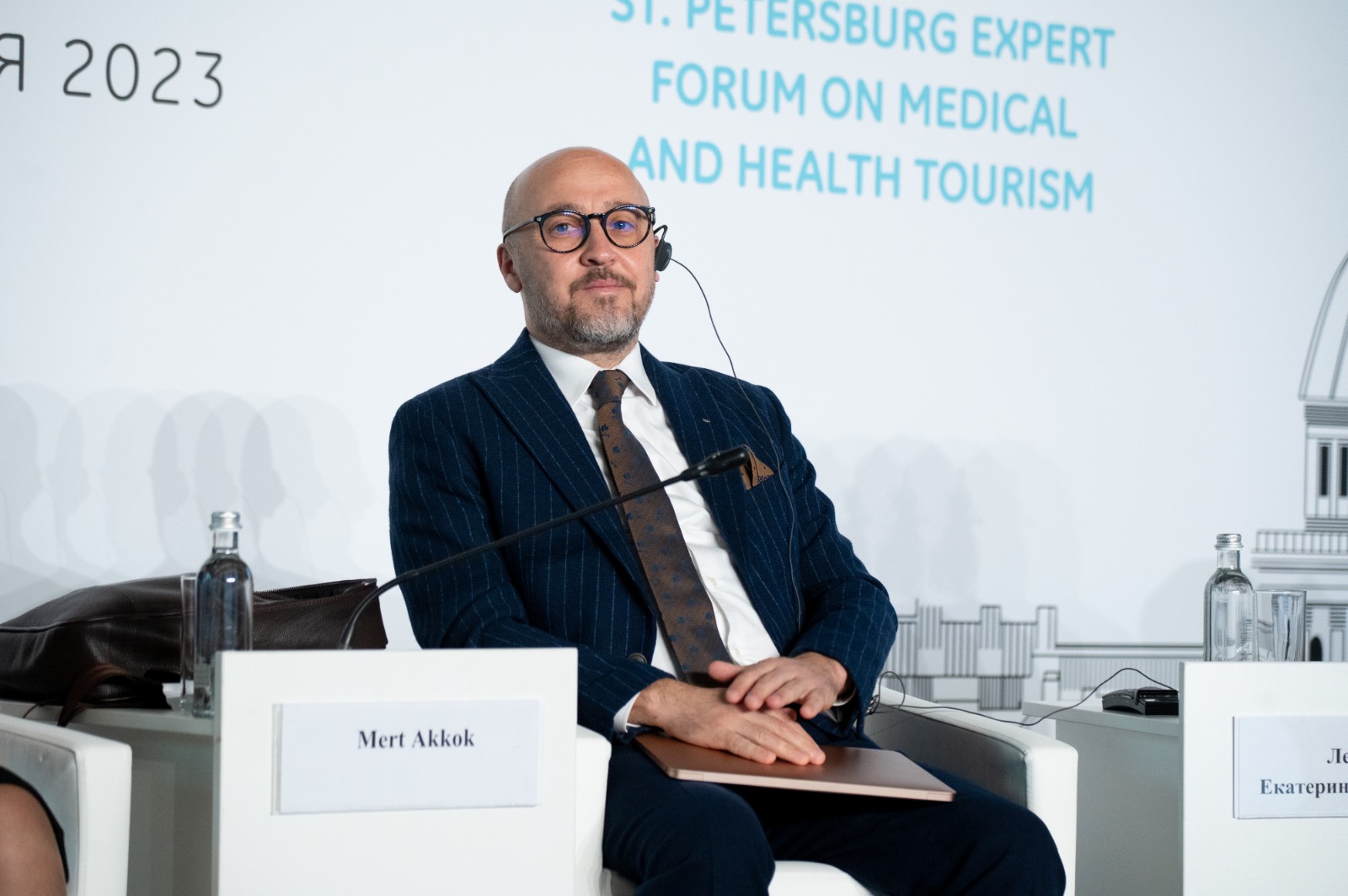From St. Petersburg to China and back: where to go for health
The St. Petersburg Expert Forum on Medical and Health Tourism took place at Expoforum. One of the sessions was devoted to the export of medicine and the study of foreign practices.
The session “Problems and prospects for the export of medical services to the BRICS, SCO and CIS countries” gathered together Russian and foreign doctors, representatives of travel agencies and scientists. The participants exchanged experience in the development of medical tourism and the export of medical services.
The meeting was moderated by Yulia Zhguleva, General Director of the St. Petersburg Medical Tourism Agency. She said that the Agency had published a catalog of medical organizations in the city which contains information about public and private clinics and sanatoriums.
President of the Medical Tourism Association of Kazakhstan, PhD Raisa Nurzhaubaeva spoke on medical tourism and its new forms of integration. She reminded: such tourism helps national medicine to reach a new level. Due to the absence of a language barrier, historical and cultural ties and traditions, Russia and Kazakhstan are attractive for medical tourists. According to the speaker, residents of Kazakhstan turn to Russia for medical help in the field of reproductive technologies, cardiology, transplantology, and dentistry.
Uzbekistan is another country residents of which are interested in medicine in Russia, coming here for treatment and health improvement. General Director of the Nasibtour company Nasiba Uzakova spoke on the attractiveness of the resorts in the southern part of Russia, and also presented the opportunities of Uzbekistan in the field of medicine.
Vice-President of the Medical Tourism Association of Kyrgyzstan Mukhametalim Tursunbaev shared the experience of Kyrgyzstan and Russia in the field of medical tourism. According to him, medical tourism is just developing in the country, and this is facilitated by the development of private medicine. At the same time, sanatorium and resort tourism has long existed here in the area of Lake Issyk-Kul.
There are 55 private hospitals, 32 sanatorium-resort and thermal complexes in Kyrgyzstan, and experienced Russian doctors are invited to work there.
“Our people go for treatment to Russia, Kazakhstan, Uzbekistan, Turkey and Israel. People need advanced technologies, high-quality medical services, and quick access to them. The relations between our countries are very close, more than 120 documents on cooperation have been signed, but there are no agreements on medical tourism. For development, we need to work on the concept of developing medical tourism, attract investments, and create marketing laboratories,” the speaker noted.
Vice-President of the Medical and Thermal Tourism Support Association of Azerbaijan Emil Hasanov presented the development of health tourism in the country. There, a fund to support tourism development is being developed, a law on benefits and subsidies in tourism is in force, furthermore organizations can reimburse part of the costs. Annually Azerbaijan gets more than 1 million tourists for medical purposes; residents of Russia, Iran, Turkey, and Georgia come there.
“We see an increase in interest in medical tours and an increase in passenger traffic. At the same time, there is still little information between countries about treatment options; people cannot get complete information. This process should be organized by our associations,” he emphasized.
The interaction of medical organizations in Russia and China is a prerequisite for the development of medical tourism, noted Wang Xiaokun from the Chinese Traditional Chiropractic Medical Center and the Chen Tai Oncology Center in Anshan. The speaker presented the main directions and methods of work of Chinese organizations and noted the great potential for interaction between medical institutions in China and Russia.
“There is a very lack of connections between the countries; the pandemic has interrupted the development of bilateral relations. We need to develop a technological scheme for providing services. Medical tourists need to understand what programs are available and what the conditions of stay are,” she said.
Modern trends and potential for the development of medical tourism in Russia and Kazakhstan were presented by Doctor of Economic Sciences, professor, corresponding member of the Scientific Research Institute of Kazakhstan, honorary member of the Global Healthcare Travel Council (GHTC) Saulesh Kalenova. The speaker spoke about the correct interpretation of medical tourism (when a medical institution invites a patient for treatment in its clinic, and treatment and recreation are combined).
According to the Organization for Economic Cooperation and Development, the annual number of medical tourists in the world is 50 million people; according to other sources, there are 30 million of such tourists, the expert said.
“The potential of medical tourism is very high; every day Google registers up to 140 million requests for treatment abroad. Participants in the medical tourism market are patients and their accompanying persons, medical institutions, insurance and tourism companies, and services,” noted Kalenova.
She emphasized that it is necessary to develop medical tourism between the CIS countries: countries should engage in marketing promotion of medical services, join medical tourism operators, explore the image of medicine, and use recommendations for the development of medical tourism based on international experience. Among them are international accreditation of medical centers, improving the quality of services, attracting experts, etc.
During the session, participants were presented with a video “How to create a medical tourism business from scratch. From idea to success” from leading expert in the field of medical tourism Dr. Prem Jagyasi (India). He recommended that tourism agents work carefully with investors: show them the future, create strategies and business plans, and reflect development forecasts.
The meeting participants agreed to continue cooperation and search for optimal solutions in the field of medical and health tourism.

 Calendar
Calendar
 Online application
Online application
 Map
Map
 How to get
How to get




